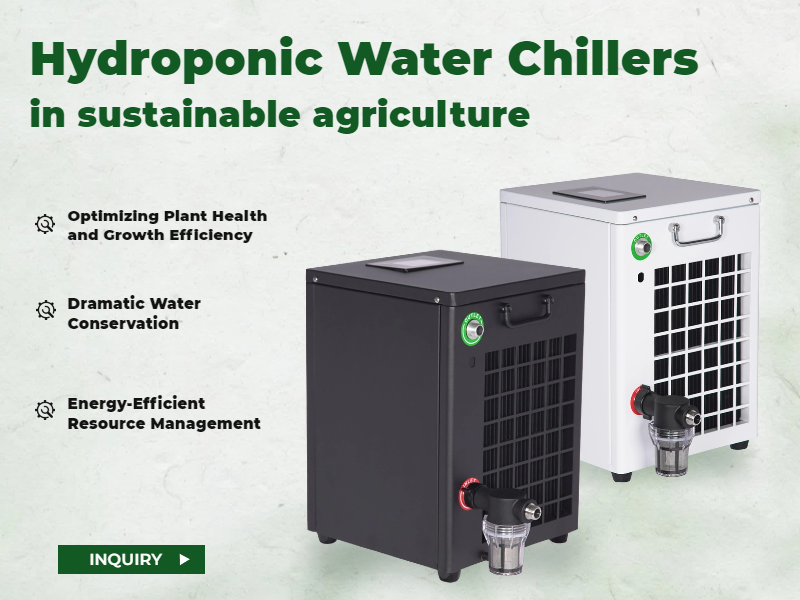In recent years, the agricultural landscape has seen a significant shift towards sustainable practices, and hydroponics has emerged as a leading method for growing crops without soil.
Central to the efficiency of hydroponic systems is the role of hydroponic water chillers, which maintain optimal water temperatures for plant growth. This article explores the importance of hydroponic water chillers in sustainable agriculture, their operational mechanisms, benefits, and future trends in the industry.
Hydroponics is a method of growing plants in nutrient-rich water solutions, and maintaining the right temperature is crucial for maximizing nutrient uptake and promoting healthy growth.
Hydroponic water chillers work by regulating the temperature of the water in which plants are grown, ensuring that it remains within the ideal range for various crops. Typically, water temperatures between 18°C to 22°C (64°F to 72°F) are optimal for most hydroponic plants, as this range encourages healthy root development and nutrient absorption.
One of the primary benefits of using hydroponic water chillers is the prevention of root diseases, which can thrive in warmer water temperatures.
By keeping the water cool, these chillers help to inhibit the growth of harmful pathogens such as Pythium, a common root rot disease in hydroponic systems. This not only protects the plants but also reduces the need for chemical treatments, aligning with sustainable agricultural practices.
Moreover, hydroponic water chillers contribute to energy efficiency in agricultural operations.
Many modern chillers are designed to operate with minimal energy consumption, making them an eco-friendly choice for farmers looking to reduce their carbon footprint. By investing in high-efficiency chillers, growers can enjoy lower operational costs while promoting sustainability in their practices. Additionally, the use of chillers can extend the growing season for certain crops, allowing farmers to produce more yields throughout the year.
As the demand for sustainable agriculture continues to rise, the market for hydroponic water chillers is expected to grow significantly.
Innovations in technology, such as the integration of smart sensors and automation, are making these systems more efficient and user-friendly. Future developments may include advanced cooling techniques that utilize renewable energy sources, further enhancing the sustainability of hydroponic farming.
In conclusion, hydroponic water chillers play a vital role in the realm of sustainable agriculture by maintaining optimal water temperatures, preventing diseases, and promoting energy efficiency.
As the industry evolves, these chillers will continue to be an essential component for growers aiming to produce high-quality crops while adhering to sustainable practices. The future of agriculture is undoubtedly leaning towards solutions that prioritize environmental stewardship, and hydroponic water chillers are at the forefront of this movement.
Table of Contents
- In recent years, the agricultural landscape has seen a significant shift towards sustainable practices, and hydroponics has emerged as a leading method for growing crops without soil.
- Hydroponics is a method of growing plants in nutrient-rich water solutions, and maintaining the right temperature is crucial for maximizing nutrient uptake and promoting healthy growth.
- One of the primary benefits of using hydroponic water chillers is the prevention of root diseases, which can thrive in warmer water temperatures.
- Moreover, hydroponic water chillers contribute to energy efficiency in agricultural operations.
- As the demand for sustainable agriculture continues to rise, the market for hydroponic water chillers is expected to grow significantly.
- In conclusion, hydroponic water chillers play a vital role in the realm of sustainable agriculture by maintaining optimal water temperatures, preventing diseases, and promoting energy efficiency.






